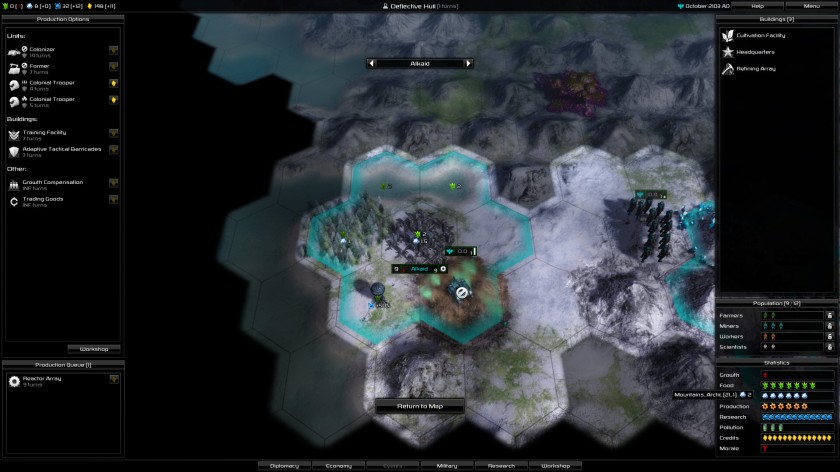1/31/2017 – Dylan Wheeler – Developer
Group:
- Joshua Robitaille
- Mathieu Lafreniere
- Nicolas Kruzel
- Zachary Larkin
My idea as a designer saw itself taking shape very early on, as I had already collected a store of knowledge about the subject of immigration from a prior class. I don’t enjoy approaching subjects like this from the angle of human morality, as it implies that those one is trying to convince don’t understand the moral value inherent, which is patronizing at best and not very helpful to legitimate discourse.
As such, my concept for a game focused around immigration approaches the subject from the angle of economics, seeking to illustrate how an immigrant population stimulates the workforce and productivity of a first world society to a significant degree.
The game would be a 4X title, a turn based strategy game meant to be played competitively with other players. Each player would control a fictional nation after the industrial revolution, with the goal of being the nation with the greatest sum of ‘Industry’ and ‘Happiness’ compared to the scores of the other players.

Pandora: First Contact is a type of game like this, with city management.
The players would need to juggle several resources, such as Money, Security, and National Appeal, they would control these factors by deciding what public works projects to approve construction of, and by enacting governmental policies.
How this relates to immigration is in tone with the benefits immigration provides in the real world: Immigrants bolster the workforce and population, as 1st world countries just make fewer children than 3rd world countries that produce a lot of immigrants. The more National Appeal, the more immigrants from the game’s abstracted ‘Immigrant Pool’ decide to go to your country over the countries of other players. The more immigrants you have, the more Industry you have, both making public works faster, and contributing to your game-winning score.
But without carefully measuring security, which would be an abstracted combination of a lot of relevant concepts such as police strength, political corruption, education and others, the native population, and immigrant population would clash, causing losses of money, happiness, and industry. The player would need to maximize the amount of immigrants their country can handle, while carefully implementing the policies and facilities that can help ease the transition and introduction of foreign immigrants into their society, and they’d have to do it all faster and more efficiently than their opponents.